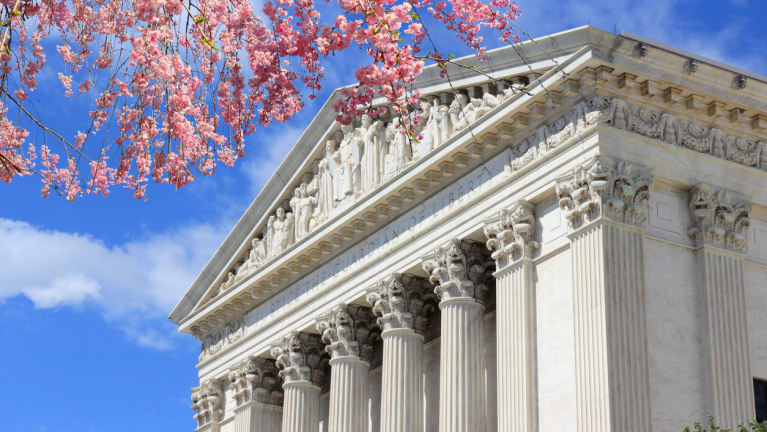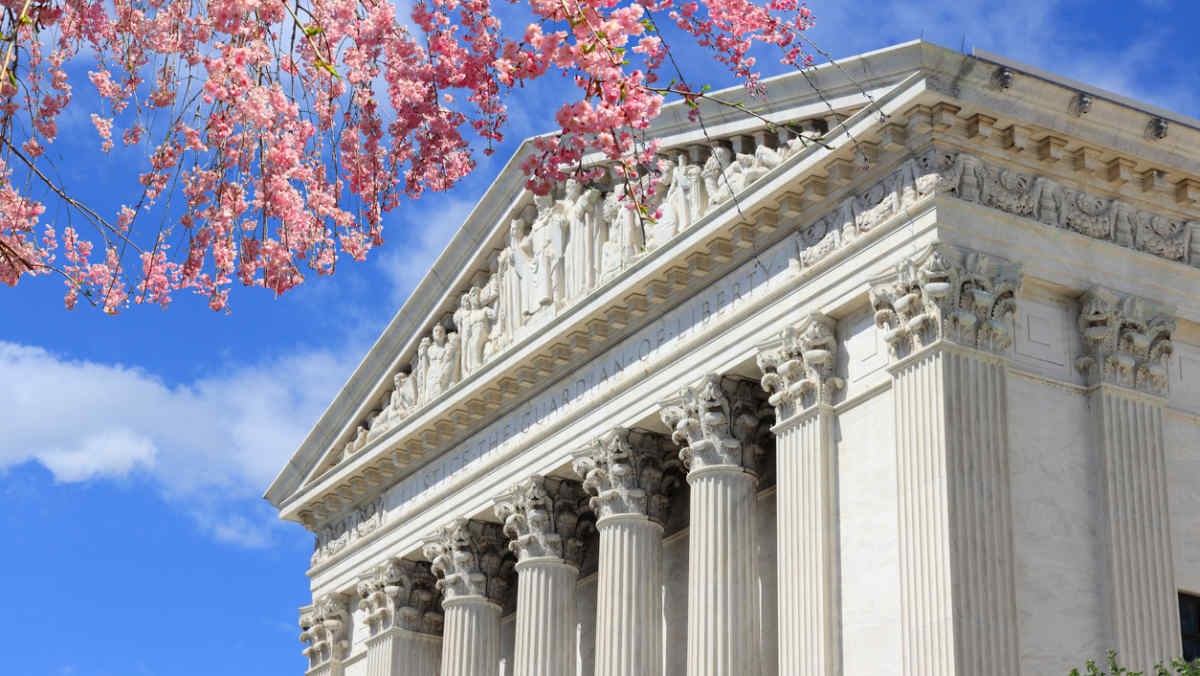

?A new U.S. Supreme Court ruling makes it less burdensome for employers to compel arbitration. In a 5-4 decision on June 23, the Supreme Court ruled that a district court must stay its proceedings while an appeal on the question of arbitrability is ongoing.
“If the district court could move forward with pre-trial and trial proceedings while the appeal on arbitrability was ongoing, then many of the asserted benefits of arbitration—efficiency, less expense,
less intrusive discovery and the like—would be irretrievably lost,” Justice Brett Kavanaugh wrote in the majority opinion in Coinbase Inc. v. Bielski.
The ruling will “relieve the parties of the cost and burdens of engaging in litigation while they wait for a decision from an appeals court,” said Samia Kirmani, an attorney with Jackson Lewis in Boston. The case “underscores that value proposition of employment arbitration agreements.”
Background
Coinbase Inc. v. Bielski combines two class-action lawsuits filed in federal district court in California against Coinbase, a San Francisco-based currency exchange and transaction platform. Coinbase’s users agreed to arbitrate disputes with the company on an individual basis.
The first lawsuit involves a user who sued Coinbase for violating the Electronic Fund Transfer Act and the accompanying Regulation E after he allegedly was scammed and lost $31,039 of cryptocurrency from his digital wallet. The plaintiffs in the second lawsuit sued Coinbase after participating in a sweepstakes that they alleged was misleading.
Coinbase tried to move the two cases to arbitration based on the user agreement’s arbitration clause.
A federal district court ruled that the arbitration agreement was too one-sided in favor of Coinbase and therefore unenforceable.
Coinbase requested an interlocutory appeal, which happens when a ruling by a trial court is appealed while other aspects of the case are still proceeding. Congress amended the Federal Arbitration Act in 1988 to allow an interlocutory appeal of decisions denying a motion to compel arbitration and refusing to stay proceedings pending arbitration.
Coinbase appealed to the 9th U.S. Circuit Court of Appeals, which denied its request to pause the litigation pending the appeal. The Supreme Court reversed the circuit court’s decision and remanded the case to the lower courts. Coinbase can continue its efforts to compel arbitration.
The Supreme Court relied on precedent set in Griggs v. Provident Consumer Discount Co. in 1982. That decision held that an appeal “divests the district court of its control over those aspects of the case involved in the appeal.”
The common practice of pausing the district court proceedings during an appeal “reflects common sense,” Kavanaugh wrote. Without an automatic stay, the right to an interlocutory appeal “would be largely nullified.”
That’s because one of the parties could feel pressure to settle to avoid the district court proceedings. “That potential for coercion is especially pronounced in class actions, where the possibility of colossal liability can lead to” settlements, Kavanaugh wrote.
In a dissent, Justice Ketanji Brown Jackson expressed concern that the majority’s opinion may have opened a Pandora’s box.
“I see no basis here for wresting away the discretion traditionally entrusted to the judge closest to a case,” she wrote. “This mandatory-general-stay rule for interlocutory arbitrability appeals comes out of nowhere. No statute imposes it. Nor does any decision of this court.”
Pros and Cons of Arbitration Agreements
Companies can weigh the pros and cons of requiring all their workers to sign an arbitration agreement.
Some employers use arbitration agreements in order to have employment disputes decided on an individual basis, “rather than in litigation, where they may be decided on a class or collective basis, which are costly to defend and pose significant risk,” said Noah Finkel, an attorney with Seyfarth in Chicago. Others “wish to avoid the chance of a runaway jury verdict. And yet others view arbitration as quicker and less expensive than litigation.”
Unlike public court proceedings, arbitration is kept private.
On the con side, arbitration is final with no ability to appeal the decision, and the entire cost usually rests with the employer.
“One reason not to implement an arbitration program has been that, in some circuits, an employer has risked having to both pursue its right to have a dispute decided in arbitration, rather than in litigation, while having to participate in litigation at the same time,” Finkel said. “With this ruling, that risk is eliminated.”
